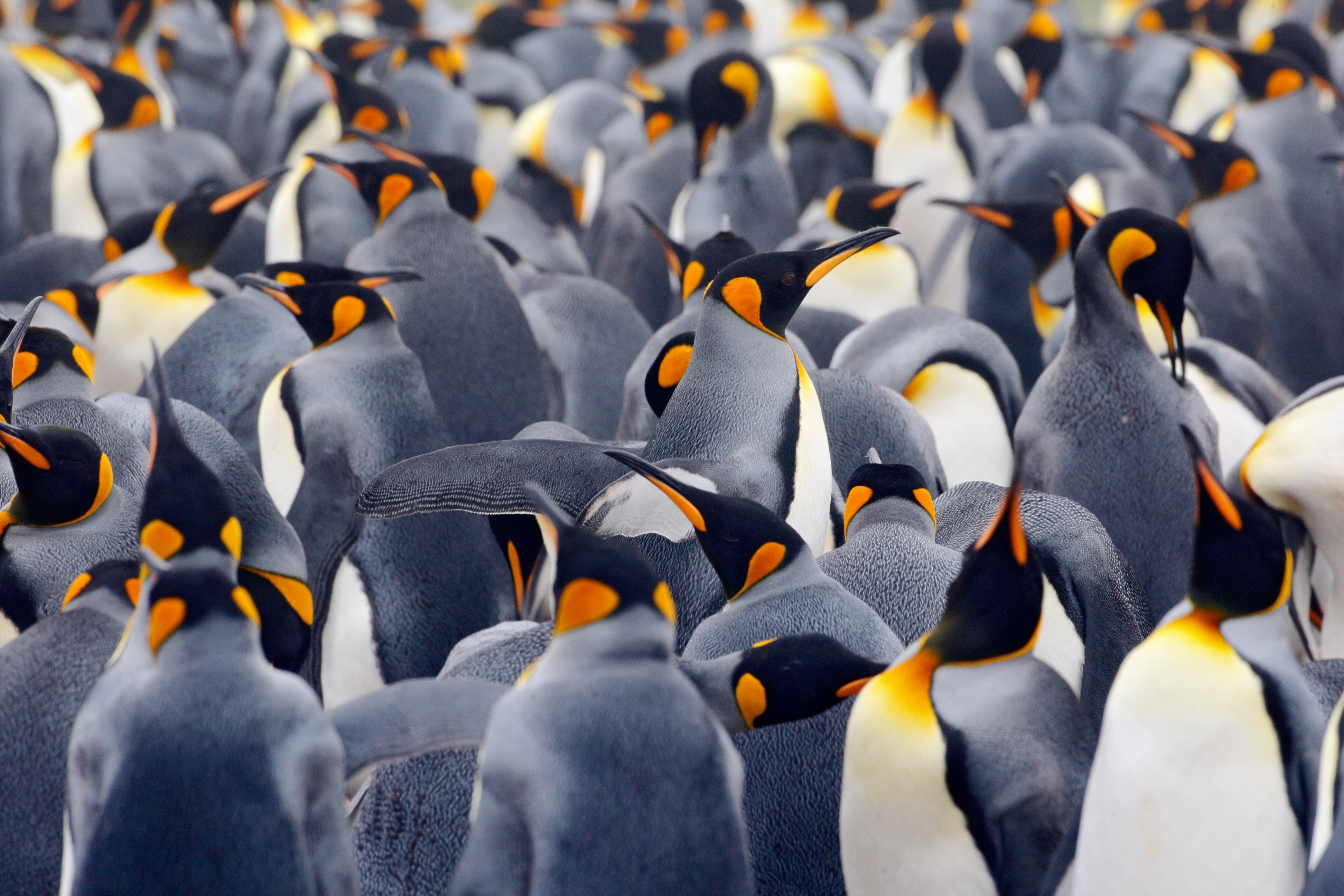Clive Chatters travelled on our 'Sub-Antarctic Islands of New Zealand & Australia' holiday and submitted this entry to our writing competition.
King Penguins
I am not a birdwatcher. With friends of such an orientation I have learnt to maintain a polite interest. It would have seemed churlish not to have taken Naturetrek’s pre-departure advice to pack binoculars for my trip south.
The opportunity to visit the sub-Antarctic islands of Macquarie, Enderby and Campbell was not to be missed. I was particularly keen to see the uninhabited Campbell Island. The restoration from the ravages of rats and a misplaced sheep station was reputedly well advanced. Since its discovery in 1810 Campbell had been exploited for seals, then whales, then sheep. Even the island’s name is testimony to the Sydney-based Campbell & Co. whose business was to seek profit from the tenacious life that for millennia had made the island home. Maybe the sustained commitment of the Department of Conservation could once again produce the ‘floral display second to none outside the tropics’ which so inspired Joseph Hooker on his visit with Captain Ross in 1840.
Campbell Island performed beautifully. Hooker’s mega-herbs were abundant with bumptiously jolly giant flowers amidst the storm-tossed peatlands of oceanic tundra. Daisies and carrots have never been more alluring. Photographic keepsakes were a challenge, the wind so strong that everything shakes, the cloudbase so dense there is seldom enough light. Precious sunlit moments bleached out even the most cheerful pinks and oranges. In such a place one may set technological aide memoirs aside; the best trophies are those in the memory of mind. What evolutionary processes resulted in the colourful giantism of these islands is open to academic interpretation. Yet here on this bleak rocky place was a spectacle well worth a journey across half the world.
The unexpected highlight of the voyage was the ocean itself. Beyond the roaring forties the Southern Ocean is vast but far from empty. Monumental swells and crosswinds maintain a state of perpetual change. Gently spaced downs and broad valleys morphed with gales into white-clad peaks with avalanches of spume racing down into crushing ravines. Water and air found common purpose in the sullenness of mist through patchy spindrift and soaking foams. The blackening squalls chased away to the horizon to be displaced by curls of translucent neon-blue. Throughout each mood the ship sails on, the forward motion refined by infinite variations on heaves and pitches, rolls and yaws. Every step on board, each everyday action, needed a fresh approach. The prosaic events of daily life were thrillingly reinvented.
This shifting geography was punctuated by birds. Throughout our voyage albatross shared our passage with effortless companionship; almost within touch the great birds crossed and re-crossed our stern. Once ashore our yomps across the islands’ bogs obliged a path to be found between the grounded giants to maintain the etiquette of access to the wilderness. We were the strangers here but the birds didn’t mind. Flightless teal and snipe went about their business with complete indifference to our presence. Had they no understanding that their company should rightfully be a test of our patience and skill? In contrast, on the beach of Macquarie Island, a gaggle of King Penguins took it upon themselves to wander up to take an inquisitive peck at my boots. Who was the most curious of those of us enjoying the afternoon sun that day? The casual questioning tugs of the penguins did not seem to be based in trust but an absence of fear; the collective memory of the colony neglecting to recall the deprivations of the past exploitation of their oily bounty.
Observing the natural world encourages fresh perspectives. In a world where binoculars are unnecessary one may almost be tempted to take up birdwatching.
Read more about our 'Sub-Antarctic Islands of New Zealand & Australia' holiday.



 Loading search...
Loading search...
